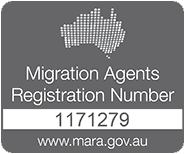2017 is bringing many changes with it, including significant updates to the rules that guide who can live and work in Australia. Naturally, the workers themselves will have to adapt, but they aren’t the only ones. Any business that has hired overseas employees or who plan to in the future must know about the new rules and regulations related to bringing skilled workers into the country.
A Switch to a Flat Levy Tax
One of the driving forces behind the 2017 visa changes involves getting more Australians hired. Public concern has brought to light worries about foreign workers taking jobs that could be filled by Australians. In order to continue improving the local workforce, the government has added a training levy for all employer-sponsored temporary and permanent visas.
The funds collected will go towards the Skilling Australians Fund, which was created to help build apprenticeship and trainee programmes. This gives Australians an opportunity to improve their skills so that they have more employment options available.
The amount paid by the employer will vary depending on the size of their business. Companies that see turnover of $10 million or more will pay more for both Temporary Skills Shortages (TSS) and permanent employer-sponsored visas, which include RSMS and ENS. The training levies include:
- TSS
Small businesses must pay $1,200 while large businesses with turnover totaling at least $10 million will pay $1,800 for TSS visas.
- RSMS/ENS
Small businesses must pay $3,000 for RSMS and ENS visas while large businesses of over $10 million turnover must pay $5,000.
Increase in Visa Application Fees
Additional expenses are being added in the form of increased visa application fees. Most visa types will see an increase of around 2%, which goes into effect on 1 July 2017. 457 visas will go from $1,060 to $1,080 while ENS and RSMS visas will go from $3,600 to $3,670.
Will Visa Changes Impact Your Business?
Changes to visa programmes may impact who you can bring into the country as an employee. There are some obvious financial challenges as well, with increases in application fees and a flat tax levy for employer-sponsored visas. Additional changes include restrictions and increased costs for overseas investors buying Australian property as well as longer wait times for access to pensions for migrants.
Prepare your business for the 2017-18 visa changes with Emergico. Our registered migration agents offer professional service and expert advice that can help you save money and keep your workforce thriving. Contact us today to learn more about managing overseas workers in Australia.





